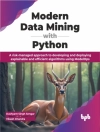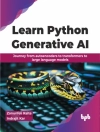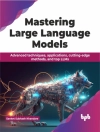Affective Computing for Social Good: Enhancing Well-being, Empathy, and Equity offers an insightful journey into the intricate realm of affective computing. It covers a spectrum of topics ranging from foundational theories and technologies to ethical considerations and future possibilities.
Beginning with ‘Deciphering the Emotional Spectrum: Advances in Emotion Science and Analysis, ‘ it sets the stage by tracing the evolution of understanding human emotions. Subsequent chapters explore practical applications, such as integrating clinical psychology with affective computing for therapeutic progress and leveraging affective computing in diagnosing and managing mood disorders more efficiently.
As the narrative unfolds, the book emphasizes the crucial role of affective computing in fostering social justice and equity. It underscores the need for developing inclusive algorithms and databases while addressing ethical challenges like privacy, consent, and the risk of emotional manipulation. These discussions emphasize the significance of ethical deployment and regulation.
The book also covers the technical aspects and applications of affective computing, including natural language processing for emotion recognition and analysis, voice emotion detection, and visual emotion recognition. It extends to applications, such as the use of affective computing in health management via recommender systems and personalized well-being interventions in mental health care.
Addressing data challenges, ‘Enhancing Affective Computing with Data Augmentation: Strategies for Overcoming Limited Data Availability’ presents solutions for imbalances affecting model performance. ‘Advancements in Multimodal Emotion Recognition’ highlights the integration of facial expressions with physiological signals to improve emotion recognition accuracy and reliability.
Concluding with ‘Ethical Considerations in Affective Computing’ and ‘Cognitive Currents: A Path from Neuroscience to Consciousness, ‘ the book connects technical advancements in affective computing with broader ethical and philosophical inquiries surrounding consciousness and the human experience.
Features:
- Helps readers understand the potential benefits of emotionally intelligent AI systems, such as improving mental health care, enhancing education, or promoting more ethical decision-making.
- Addresses ethical considerations related to the development and deployment of emotionally intelligent AI systems, helping readers to become more aware of the potential risks and trade-offs involved.
- Presents new approaches or frameworks for developing emotionally intelligent AI systems, providing readers with innovative ideas and perspectives.
- Provides examples of successful case studies where emotionally intelligent AI systems were used for social good, which may inspire readers to think about how they can contribute to society through AI development.
Overall, this book will help readers gain a deeper understanding of the intersection between AI and human emotions, and how this technology can be used to create a more empathetic, compassionate, and socially responsible world.
قائمة المحتويات
Chapter 1 The Science of Emotion: Decoding and Analysis of Human Emotional Landscape.- Chapter 2 The Synergy of Clinical Psychology and Affective Computing: Advancements in Emotion Recognition and Therapy.- Chapter 3 Affective Computing in Mood Disorders: Beyond Conventional Diagnostic Tools to Modern Technologies.- Chapter 4 The Role of Affective Computing in Social Justice: Harnessing Equity and Inclusion.- Chapter 5 Exploring the Ethical Dimensions and Societal Consequences of Affective Computing.- Chapter 6 Natural Language Processing for Emotion Recognition and Analysis.- Chapter 7 From Data to Emotions: Affective Computing in Voice Emotion Detection.- Chapter 8 Visual Emotion Recognition Through Affective Computing.- Chapter 9 Affective Computing for Health Management via Recommender Systems: Exploring Challenges and Opportunities.- Chapter 10 Personalized Well-being Interventions (PWIs): A New Frontier in Mental Health.- Chapter 11 Enhancing Affective Computing in NLP through Data Augmentation: Strategies for Overcoming Limited Data Availability.- Chapter 12 Advancements in Multimodal Emotion Recognition: Integrating Facial Expressions and Physiological Signals.- Chapter 13 Ethical Considerations in Affective Computing.- Chapter 14 The Horizon of Consciousness for Affective Computing: Future Trends and Possibilities.
عن المؤلف
Muskan Garg is a postdoctoral research fellow at Mayo Clinic, Rochester, Minnesota. She previously worked as postdoctoral research associate at University of Florida and as an assistant professor in Thapar Institute of Engineering and Technology, Patiala. Her research focuses on the problems in natural language processing, information retrieval, and social media analysis. She received her Masters and Ph D from Panjab University, India. Prior to TIET, she worked as an assistant professor in Amity School of Engineering and Technology at Amity University. Her focus is on research and development of cutting-edge NLP approaches to solving problems of national and international importance and on initiation and broadening a new program in natural language processing (including a new NLP course series). Her current research interests are causal inference, mental health on social media, event detection and sentiment analysis. She contributes as a reviewer in peer reviewed journals and conferences. She has published 40+ publications in top tier venues including ACL, ICWSM, IEEE SMC, Journal of Biomedical Informatics, Expert Systems with Applications, Knowledge based Systems, Journal of Alzheimer’s Disease and Asian Journal of Psychiatry. She has published over five books and book chapters on NLP and healthcare.
Rajesh Prasad is Professor (CSE) and Associate Dean (Engineering) at MIT Art, Design, and Technology University, Pune. He has more than 27 years of academic and research experience. He is an active senior member of IEEE and a chartered engineer from IE. He is instrumental in developing the curriculum and contents. He is associated with several universities in different roles. He is Ph.D. in Computer Engineering. He has published more than 90 papers in international and national journals. His area of interest is in Text and Data Analysis, Speech Processing, etc. He has authored over ten books and book chapters. He has been associated with industries for research collaborations. He is an active member of various professional societies (ISTE, IEEE, CSI, etc.). His biography was published by Marquis Publication USA in Sept 2009. He has served as Research Review committee members in renowned universities like Symbiosis International University, Savitribai Phule Pune University, Bharath University etc.












